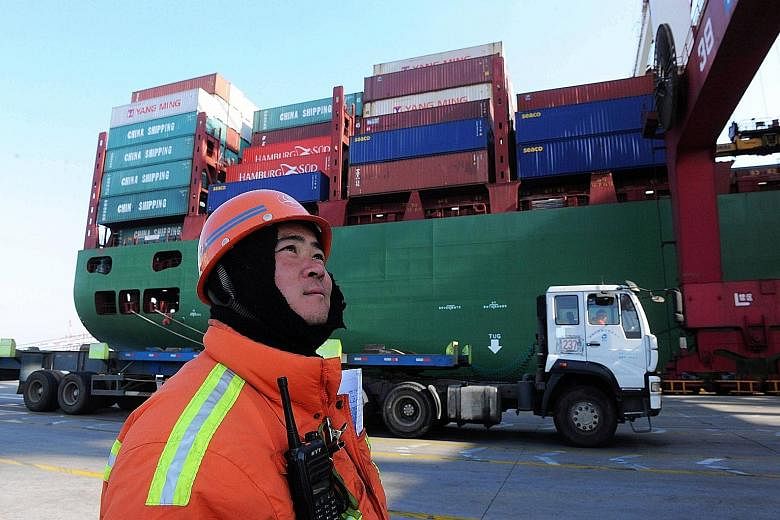SHANGHAI • China's exporters have found a silver lining in weak global demand by seizing market share from their competitors - good news for the country but an expansion that is aggravating trade tensions.
China's proportion of global exports rose to 13.8 per cent last year from 12.3 per cent in 2014, data from the United Nations Conference on Trade and Employment showed, the highest share any country has enjoyed since the United States in 1968.
The success belies widespread predictions that rising costs for Chinese labour and a currency that has increased nearly 20 per cent against the US dollar in the last decade would cause China to lose market share to cheaper competitors.
Instead, China's manufacturing infrastructure built during the country's industrial rise of recent decades is keeping exports humming and providing the basis for firms to produce higher-value products. "China cannot be replaced," said Mr Fredrik Guitman, former general manager for a Danish company in China, adding that reliable delivery times were more important than price. "If they say 45 days, it will be 45 days."
Still, even as Chinese firms compete in more sophisticated product lines, they are unloading overstocked inventory from entrenched industrial overcapacity in sectors like steel, an irritant in global trading relationships.
At the same time, China's imports from other countries fell sharply - down over 14 per cent in 2015 - leading some economists to suggest the country was deploying an "import substitution" strategy that is pushing foreign brands out of its domestic markets.
On Wednesday, Beijing rolled out fresh measures to support machinery exports, including tax rebates, and encouraged banks to lend more to exporters. Machinery and mechanical appliances make up the biggest portion of China's exports.
Chinese firms' tenacity in overseas markets is largely built on the country's investment in a massive and integrated supply chain infrastructure, which makes them faster and more reliable to foreign companies that outsource all or some of their production.
Critics say much of China's move up the value chain has been the result of pressure on foreign firms to transfer technology, combined with a systematic and sustained campaign of industrial espionage targeting foreign technology.
But while China has expanded its share, its firms have yet to develop the branding power of the likes of an Apple or Louis Vuitton.
REUTERS

